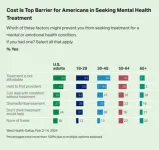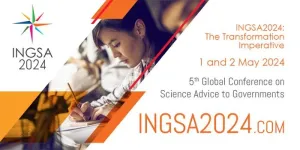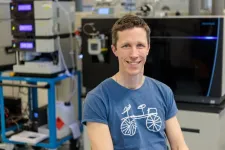(Press-News.org) PULLMAN, Wash. -- A new computer model uses a better artificial intelligence process to measure snow and water availability more accurately across vast distances in the West, information that could someday be used to better predict water availability for farmers and others.
Publishing in the Proceedings of the AAAI Conference on Artificial Intelligence, the interdisciplinary group of Washington State University researchers predict water availability from areas in the West where snow amounts aren’t being physically measured.
Comparing their results to measurements from more than 300 snow measuring stations in the Western U.S., they showed that their model outperformed other models that use the AI process known as machine learning. Previous models focused on time-related measures, taking data at different time points from only a few locations. The improved model uses both time and space into account, resulting in more accurate predictions.
The information is critically important for water planners throughout the West because “every drop of water” is appropriated for irrigation, hydropower, drinking water, and environmental needs, said Krishu Thapa, a Washington State University computer science graduate student who led the study.
Water management agencies throughout the West every spring make decisions on how to use water based on how much snow is in the mountains.
“This is a problem that’s deeply related to our own way of life continuing in this region in the Western U.S.,” said co-author Kirti Rajagopalan, professor in WSU’s Department of Biological Systems Engineering. “Snow is definitely key in an area where more than half of the streamflow comes from snow melt. Understanding the dynamics of how that’s formed and how that changes, and how it varies spatially is really important for all decisions.”
There are 822 snow measurement stations throughout the Western U.S. that provide daily information on the potential water availability at each site, a measurement called the snow-water equivalent (SWE). The stations also provide information on snow depth, temperature, precipitation and relative humidity.
However, the stations are sparsely distributed with approximately one every 1,500 square miles. Even a short distance away from a station, the SWE can change dramatically depending on factors like the area’s topography.
“Decision makers look at a few stations that are nearby and make a decision based on that, but how the snow melts and how the different topography or the other features are playing a role in between, that’s not accounted for, and that can lead to over predicting or under predicting water supplies,” said co-author Bhupinderjeet Singh, a WSU graduate student in biological systems engineering. “Using these machine learning models, we are trying to predict it in a better way.”
The researchers developed a modeling framework for SWE prediction and adapted it to capture information in space and time, aiming to predict the daily SWE for any location, whether or not there is a station there. Earlier machine learning models could only focus on the one temporal variable, taking data for one location for multiple days and using that data, making predictions for the other days.
“Using our new technique, we’re using both and spatial and temporal models to make decisions, and we are using the additional information to make the actual prediction for the SWE value,” said Thapa. “With our work, we’re trying to transform that physically sparse network of stations to dense points from which we can predict the value of SWE from those points that don’t have any stations.”
While this work won’t be used for directly informing decisions yet, it is a step in helping with future forecasting and improving the inputs for models for predicting stream flows, said Rajagopalan. The researchers will be working to extend the model to make it spatially complete and eventually make it into a real-world forecasting model.
The work was conducted through the AI Institute for Transforming Workforce and Decision Support (AgAID Institute) and supported by the USDA’s National Institute of Food and Agriculture.
END
Improved AI process could better predict water supplies
2024-05-01
ELSE PRESS RELEASES FROM THIS DATE:
A blood test for stroke risk? Study finds network of inflammatory molecules may act as biomarker for risk of future cerebrovascular disease
2024-05-01
A simple blood test could allow doctors to determine whether a person may be at higher risk for stroke or cognitive decline during their lifetime, according to a new UCLA Health study.
The study, published in the journal Stroke, found that measuring concentrations of a network of inflammatory molecules in the blood could allow doctors to calculate a risk score for susceptibility for cerebral small vessel disease – a common cause of stroke and a contributor to cognitive decline found especially among the elderly.
Currently, the only way to determine a person’s risk for cerebral vascular diseases has been ...
New survey finds 75% of Americans feel mental health takes back seat to physical health within U.S. healthcare system
2024-05-01
WASHINGTON, DC – May 1, 2024 – Three-quarters of Americans feel mental health conditions are identified and treated much worse than physical health issues within the U.S. healthcare system, even as more than 80% perceive a dramatic rise in prevalence of mental health issues in the last five years, according to a new survey from West Health and Gallup released at the start of Mental Health Awareness Month and Older Americans Month.
Nearly identical percentages believe mental health is handled either “much” (38%) or “somewhat” worse (37%) than physical health ailments, while 15% say they are dealt with “about the same.” ...
Brief anger may impair blood vessel function
2024-05-01
Research Highlights:
When adults became angry after remembering past experiences, the function of cells lining the blood vessels was negatively impaired, which may restrict blood flow. Previous research has found that this may increase the risk of heart disease and stroke.
In this study, episodes of anxiety and sadness did not trigger the same change in functioning of the blood vessel lining.
Embargoed until 4 a.m. CT/5 a.m. ET Wed., May 1, 2024
DALLAS, May 1, 2024 — A brief episode of anger triggered by remembering past experiences may negatively impact the blood vessels’ ability to relax, which is essential ...
Science advisors unite in a call for greater variety of evidence in developing policy
2024-05-01
What? 5th International Conference on Governmental Science Advice, INGSA2024, marking the 10th Anniversary of the creation of the International Network for Governmental Science Advice (INGSA) & first meeting held in the global south.
Where? Kigali Convention Center, Rwanda: https://www.ingsa2024.com/
When? 1 – 2 May, 2024.
Context: One of the largest independent gatherings of thought- and practice-leaders in governmental science advice, research funding, multi-lateral institutions, academia, science communication and diplomacy is ...
New Japanese lily species identified, 1st addition to sukashiyuri group in 110 years
2024-05-01
A new species of the Japanese lily known as sukashiyuri has been identified for the first time since 1914 by a research team led by Dr. Seita Watanabe, a specially appointed assistant professor at the Botanical Gardens and the Graduate School of Science at Osaka Metropolitan University.
Dr. Watanabe questioned the classification used up to now for sukashiyuri group, which usually has orange flowers. These lilies have high ornamental value, having been exported from Japan for more than two centuries. There have been only four taxonomic groups, but Dr. Watanabe and his team sought evidence to prove that there were ...
The popular kids in school may be sleeping less
2024-05-01
Due to a later melatonin onset and increased alertness in the evening, teenagers often find it hard to fall asleep at a time that would allow them to clock up the recommended eight to 10 hours of sleep each night.
It is also during teenage years when increasing school demands, activities, more independence from parents, and relationships with peers begin to compete with sleep. The role of social context, however, is often overlooked when studying adolescents’ sleep. Now, researchers in Sweden and Australia wanted to find out how popularity ...
Patients with rheumatoid arthritis have unique and complex autoantibody patterns
2024-05-01
Patients with rheumatoid arthritis (RA) all have a unique and diverse set of antibodies that are involved in the development of the disease. Researchers at Utrecht University unveiled the complexity of these antibodies using powerful lab tools capable of analysing our immune system at molecular levels. Their discovery suggests that current assumptions about the origin of RA are too simple. Still, their findings may point towards improved diagnostics.
Rheumatoid arthritis is a chronic autoimmune disease that primarily affects the joints, causing pain, stiffness, and swelling. It arises when the immune system mistakenly attacks the body’s own tissues, leading ...
Keck Hospital of USC earns an ‘A’ hospital safety grade from The Leapfrog Group
2024-05-01
LOS ANGELES — Keck Hospital of USC earned an “A” Hospital Safety Grade from The Leapfrog Group, an independent national watchdog organization.
“This grade puts Keck Hospital among the safest in the nation, and is a testament to the hospital’s commitment to the highest standards of quality and safety protocols,” said Marty Sargeant, MBA, CEO of Keck Medical Center of USC.
The Leapfrog Group assigns an “A,” “B,” “C,” “D” or “F” grade to general hospitals across the country based on over 30 measures of errors, accidents, injuries and infections and the ...
Survey finds young adults more likely to believe myths about sun protection and skin cancer prevention
2024-05-01
Orlando, Fla - A new national survey by the Orlando Health Cancer Institute finds nearly a third (32%) of Americans agree that a tan makes people look better and healthier, a dangerous beauty standard that experts say can lead to risky behavior when it comes to sun exposure.
“There is no such thing as a healthy tan, as it’s really just a visual manifestation of damage to the skin,” said Rajesh Nair, MD, an oncology surgeon at the Orlando Health Cancer Institute. “But we’re fighting against a perceived positive image and health benefits of something that actually has a totally opposite reality, which ...
Time zones and tiredness strongly influence NBA results, study of 25,000 matches shows
2024-05-01
The body clock has a significant impact on the performance of NBA players, according to study published in the peer-reviewed journal Chronobiology International.
The authors say their findings, from more than 25,000 matches, show elite basketball coaches and teams should consider the physical and mental effects of time zone travel when planning games and preparing for games.
A first of its kind, the research is based on the achievements at home and away of NBA (National Basketball Association) league players across 21 consecutive seasons. Considered the most competitive in the world, NBA athletes frequently travel ...






